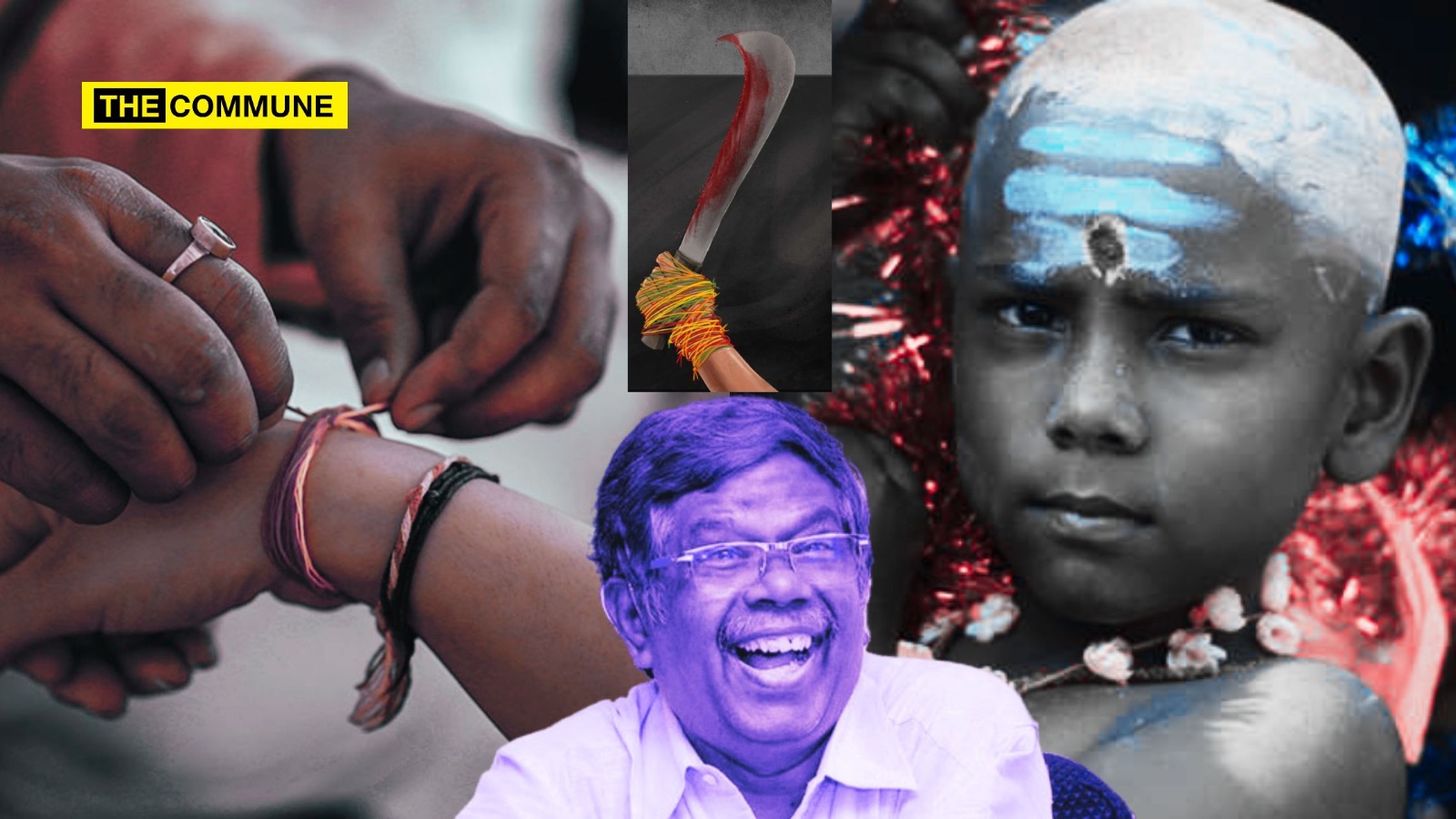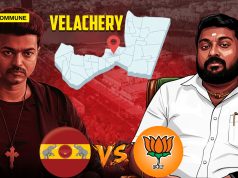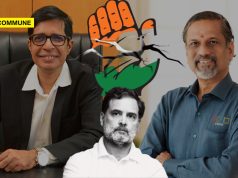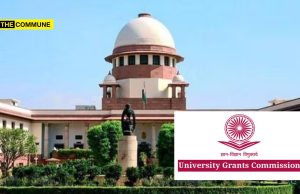
The one-man commission report submitted by retired judge Chandru has caused great concern and outrage among the Hindu community. The report seems to be only indicating one particular religion. In the name of preventing caste violence, the report’s recommendations are seen to only target Hindus and their customs and practices.
Let’s see how this report is problematic and why it is an attack on Hindus alone.
To start with, the report begins with a quote from Dr. BR Ambedkar in Ambedkar An Overview (p.404)
“Hindus must consider whether the time has not come for them to recognize that there is nothing fixed, nothing eternal, nothing sanatan; that everything is changing, that change is the law of life for individuals as well as for society. In a changing society, there must be a constant revolution of old values; and the Hindus must realize that if there must be standards to measure the acts of men, there must also be a readiness to revise those standards.”
The need for referring to Hindus is a blatant indication that the report is targeting the Hindu community only and also perpetuates the lie that it is only the Hindu community that is riddled with caste-based violence.
Let’s take a look at each of the problematic recommendations.
Removal of Caste Names From Institutions
The report suggests removing caste names from schools and colleges, including those established by the government specifically for communities such as the Kallars and Adidravidars. These schools were established to provide special attention to these marginalized groups, even though students from other communities also attend them. One wonders what the purpose of removing these caste names is and what it will achieve. For example, Tamil Nadu has a Department for the Welfare of Adi Dravidars—if school titles need to be changed, one can argue whether this department’s name also be reconsidered. If so, how should it be renamed? The welfare of whom?
Schools for the backward communities were built to support specific disadvantaged communities. It is also a matter of wonder whether removing caste names applies only to schools and colleges, considering that caste-based violence occurs throughout society and not just in educational institutions.
To achieve this, the report recommends that the government amend the Tamil Nadu Societies Registration Act “and insert a provision that a society intending to start an educational institution shall not include any caste appellations in their institution’s name.”
The committee also recommends that teachers keep caste details confidential and must not address the students by their caste name or any such. While this sounds good, one wonders whether the government and schools/institutions will stop celebrating the remembrance days of illustrious leaders like Dr Ambedkar or Muthuramalinga Thevar just because they have their caste name attached. Or will they change their names by dropping the “caste surname”?
Donor Recognition
Donors to schools or colleges are often honored by having their names highlighted or having buildings or blocks named after them, a common practice. Typically, these names include the donor’s caste name as a surname. Is it logical to remove this part of the name for the building or block? Doing so might insult the donor, potentially discouraging future donations. This issue arises as the government considers seeking public donations to fund schools. If conditions are imposed on donors, it is a point to ponder whether they will still be willing to contribute in the future.
The report’s focus on caste-based names raises questions about religion-based schools. Tamil Nadu has numerous schools with religious affiliations, and you can argue that if caste names are to be removed, should similar scrutiny not be applied to religious names to ensure consistency?
Student Names And Scholarships
When it comes to students’ names, many directly indicate the student’s community, as they are often based on their family deity, village deity, etc. These names can reveal the student’s community and background, even without a surname. In such cases, will students be required to change their names at the time of enrollment? Additionally, students that caste-based scholarships, often distributed privately during class hours, already reveal students’ caste backgrounds, questioning the effectiveness of removing caste indicators from institutions. So, this begs the question of whether scholarships to specific communities will be cancelled.
Teacher Appointments
The report proposes that teachers from dominant communities should not be appointed to positions like CEO, DEO, BEO, and headmasters in areas where their community is prevalent. Now isn’t this approach contradictory and impractical, as it suggests appointments should be based on caste rather than merit. They also question the definition of “area” and how this would be implemented fairly across different regions. In Tamil Nadu, people from specific communities will be “dominant” in specific regions but on the whole, SCs are the dominant category across the state. So, does this mean, SCs will be denied appointments to this post?
Annual Confidential Reports (ACR)
The committee also recommends that a confidential report be created for teachers based on how they are behaving towards SCs.
Will something similar apply to SC teachers over their behaviour towards students from other communities? This confidential report will only bring in bias and unfairness among the officers, teachers in schools. This also begs the question of whether this report will be misused by the authorities to exact revenge on the officers, teachers, and HM.
Prohibition Of Sacred Wrist Threads, Forehead Marks, Rings On Finger
The report’s final page features an image of a hand with multicoloured threads on the wrist holding a blood-soaked sickle. It is unclear why this image has been added to the report and what is the intent behind the image.
The recommendation to ban religious symbols like forehead marks and wrist threads in schools is seen as an infringement on religious freedom, and it is blatantly against the constitutional right that gives us the freedome to practice our religion.
In a society and culture that has given us saints like Avvayar who once said, “Neerilla Netri Paazh” meaning “Addle is the forehead that wears not the holy ash”
Bicycle Colours
The report states, “They must also refrain from coming to school on bicycles painted with reference to their caste or exhibiting any caste-related sentiments.” It is unclear what sentiments a cycle can exhibit or kindle. It is a known fact that colours often represent political affiliations rather than caste – black refers to DK, red to Communist, blue refers to VCK, saffron to BJP, yellow to PMK etc, complicating the rationale behind this recommendation.
Social Justice Student Force
The report also recommends the formation of a Social Justice Student “Force”. It seems the committee is unaware that there are different groups like NSS, NCC, and Scouts already been in existence for several decades in Tamil Nadu itself. The functions of this “force” as mentioned in the report seem to be similar to those of NCC, NSS, and Scouts, making one question the need to create a new one.
Identifying “Caste Atrocity Prone Areas”
The committee recommends that the state govt assess whether a given “area” be called caste atrocity prone. This recommendation seems to have been taken without taking into consideration the effect it will have on the people of a specific “area” or locality. Such actions will only incite further violence and stigmatise communities.
Historical Name Changes
Past efforts to remove caste surnames from place names, like renaming GN Chetty Road as Gopathy Narayana Road, are ineffective, suggesting that such changes do not impact societal behaviour.
Religious Institutions
DMK members like Speaker Appavoo have often praised the “immense” contribution of Christian institutions to education. Almost all Christian institutions are named indicating which religion is behind the institution. However, the committee has a problem with caste names in Hindu institutions, it exposes the underlying bias of the committee making one question whether the intent is to prevent caste-based violence and discrimination or to undermine Hindu practices.
The report by Justice Chandru has left many eyebrows raised and many questions in people’s minds rather than solving the problem for which it was formed in the first place. In the name of addressing caste-based discrimination, what can be seen is yet another attack on Hindu traditions making one question its practicality and fairness.
Justice Chandru’s report may face legal challenges, with someone likely to seek a court stay order against its implementation, potentially keeping the matter in judicial limbo for years. The DMK is likely to use this situation to argue that a retired judge’s recommendations for social justice were blocked by a “Brahmin” judiciary, regardless of the actual complainant, lawyers, or judge involved. This could become a recurring point in their rhetoric, with the salient facts obscured and the unconstitutional nature of the recommendations, similar to the AK Rajan report, exploited for political gain during elections.
So, what will happen to Justice Chandru report?
1. Someone will move court to get a stay order against implementation
2. The matter will stay in judicial limbo for the next decade.
3. DMK will create a talking point – 'A retired judge's recommendations for social justice was— Suren (@zeneraalstuff) June 20, 2024
This removal of caste names, hiding/”protecting” caste names, and prohibiting wearing Tilak and sacred wrist threads is akin to the Dravidian model of making Hindus remove their caste/surnames. The Dravidian ideologues enforced this removal of a person’s surname as a means to “abolish/eradicate” caste. Ironically, despite having succeeded in removing surnames as a mode of eradicating caste differences, incidents like Nanguneri continue day in and day out.
This move is only seen as a method to divide the Hindus further based on caste and also ensure that Hindus lose their identities forever. Instead of creating awareness and empathy in children about various castes and fostering harmony, recommending such drastic and Hinduphobic measures will only lead to dividing the society further and deepening the Dravidianist ideologies in the minds of the people and destroying society.
(with inputs from Chanakya)
Subscribe to our channels on Telegram, WhatsApp, and Instagram and get the best stories of the day delivered to you personally.




